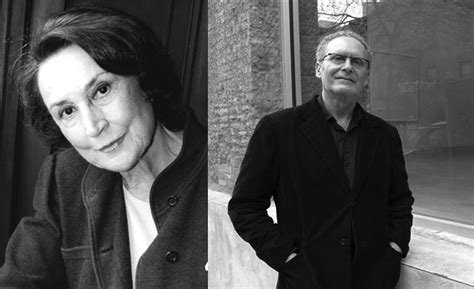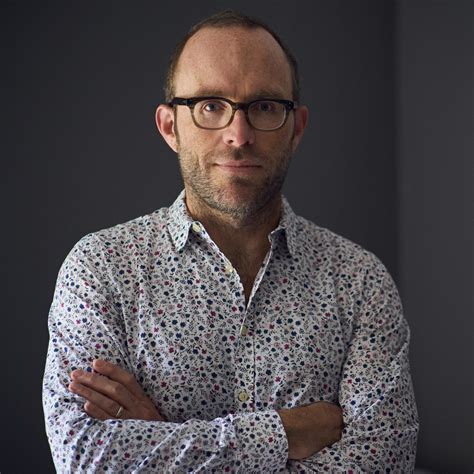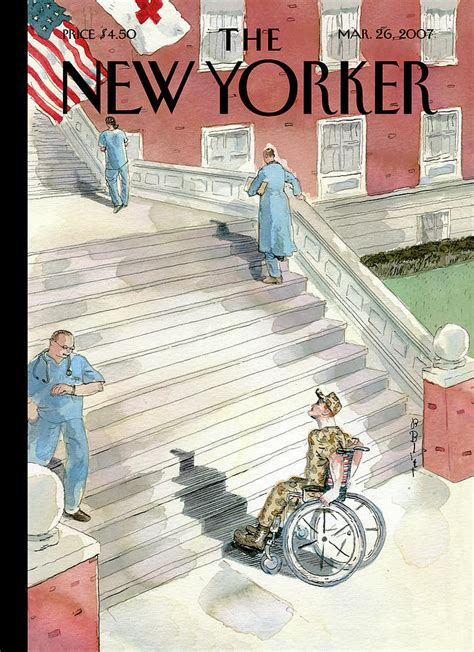Top 393 Angles Quotes & Sayings - Page 7
Explore popular Angles quotes.
Last updated on April 21, 2025.
During my practice sessions, I had walked all around the rink examining each corner. I make a habit of doing this before every major competition, to become familiar with the angles. Then I can envision what it will look and feel like when I am the only one on the ice going into a combination jump, skating backwards or getting ready for my triple Lutz. I know exactly where I will be, and so when it comes time to actually perform my routine, ever step and element will be like deja vu.
Many statements about God are confidently made by theologians on grounds that today at least sound specious. Thomas Aquinas claimed to prove that God cannot make another God, or commit suicide, or make a man without a soul, or even make a triangle whose interior angles do not equal 180 degrees. But Bolyai and Lobachevsky were able to accomplish this last feat (on a curved surface) in the nineteenth century, and they were not even approximately gods.
Literally, no man ever sees himself as others see him. No photograph or reflection ever gives us the same slant on ourselves that others see. It has often been proved on the witness stand that no two people ever see the same accident precisely the same way. We see through different eyes and from different angles. But if we could see things as other people see them, we could come closer to knowing why they do what they do and why they say what they say.
Once I'd worked out that I couldn't possibly expect people to enjoy a monstrous, 3000-page book, I realised I could in fact create a labyrinth of a story with four different points of entry. But what interested me was creating something that would rearrange itself every time you read one of the other books. So depending on which order you read them, the implications and angles would change. To get that right, each one of the books had to have its own personality and texture -- even though they are connected, they are very different creatures.
Nobody gives way to anybody. Everyone just angles, points, dives directly toward his destination, pretending it is an all-or-nothing gamble. People glare at one another and fight for maneuvering space. All parties are equally determined to get the right-of-way--insist on it. They swerve away at the last possible moment, giving scant inches to spare. The victor goes forwards, no time for a victory grin, already engaging in another contest of will. Saigon traffic is Vietnamese life, a continuous charade of posturing, bluffing, fast moves, tenacity and surrenders.
I'd worked on a series of Chicken Soup for the Teenage Soul books called The Real Deal for HCI books, which featured essays and poems from teens.Finding the right authors for the series has been no easy feat, mostly because I'm looking for a perfect blend of a teen girl with an interesting story or hook, fantastic writing talent, and the confidence to commit to writing a 30,000+ word book in a matter of months. It's a huge commitment and I recognize that, so the fit has to be there from all these different angles.
I'm not sure that all books aren't that way. I think that might apply to any book I was writing. The book was kind of the product of this enormous infatuation I had, not only with the office and office politics, but with perspective, and trying to tell a story from as wide a range of perspectives as you possibly can. I tried to capture it all with the first-person plural, but once I settled on that, I used it to tell the story from as many angles as I could. I guess, to put it romantically, it was about a love affair with the craft of perspective.
The selfie has become a new autograph, but it takes twice as long to do as a real autograph. I do it because I'm like, "What am I going to do, these people bought me my house." Why am I not going to take a picture with them except I always say, "You have to hold it up! Shoot down or it's really ugly if you shoot up!" So not only does it take longer, you have to teach them camera angles.
Isaiah Berlin once said that there are two kinds of writers, hedgehogs and foxes. He said the fox knows many things, the hedgehog knows just one thing. So Shakespeare is a typical fox; Tolstoy and Dostoyevsky are typical hedgehogs. Now, I'm a typical hedgehog. I know just one thing, and I repeat it over and over again. I try to approach it from different angles to make it look different, but it's the same thing.
The differing opinions regarding the gospel are often categorized as different variations of the same truth, or coming at the same truth from different angles, or even emphasizing different aspects of the same truth. This fails to recognize that the different 'variations' are often altogether different gospels. The Reformed gospel is completely different from the Roman Catholic gospel; a faith-based gospel is in direct contradiction to a works-based gospel; a truly evangelical gospel stands in contrast to an ultracharismatic gospel.
Half an hour later, each of them had been given a complicated circular chart, and was attempting to fill in the position of the planets at their moment of birth. It was dull work, requiring much consultation of timetables and calculation of angles. “I’ve got two Neptunes here,” said Harry after a while, frowning down at his piece of parchment, “that can’t be right, can it?” “Aaaaah,” said Ron, imitating Professor Trelawney’s mystical whisper, “when two Neptunes appear in the sky, it is a sure sign that a midget in glasses is being born, Harry . . .
People should go to the works and experience them. Because just having an idea or picture in mind is absolutely not the experience that's necessary. Even just landing in Albuquerque or Salt Lake City or Las Vegas was immediately part of the experience. And then you'd get in a car from the airport and take these very long trips - in Michael Heizer's case, it was three hours by car to get to his work. And then there's walking around and into the piece and seeing it from different angles. The kinetic experience of being a part of it physically was very important for me.
Here's a news flash for the ladies: for every one of you who thinks we all want a girl like Angelina Jolie, all skinny elbows and angles, the truth is, we'd rather curl up with someone like Charlotte - a woman who's soft when a guy wraps his arms around her; a woman who might have a smear of flour on her shirt the whole day and not notice or care, not even when she goes out to meet with the PTA; a woman who doesn't feel like an exotic vacation but is the home we can't wait to come back to.
What I always look for is someone that really knew how to lean up against a bar, get a drink, sit on a barstool. When people are in bars they're relaxed. No real right angles - it's slow moves, it's slow conversations. You can tell a loud joke, but everyone's very relaxed. I never would pick somebody nervous or twitchy. If I found guys with beards, I'd ask them, don't trim the edges, don't go in and manicure yourself up. I always look for people that look like they're comfortable in their own skin, that wouldn't feel like it was the first time they were ever in a bar.
I would like the events never to be told directly by the author, but rather to be introduced (and several times, from various angles) by those among the characters on whom they will have had any effect. I would like those events, in the account they will make of them, to appear slightly distorted; a kind of interest stems, for the reader, from the simple fact that he should need to restore. The story requires his collaboration in order to properly take shape.
If Murakami's novels are grand enigmas, his stories are bite-sized conundrums. (...) The great pleasure of the new story collection, Blind Willow, Sleeping Woman, is watching Murakami come at his obsessions from so many different angles. There's a panoply of strangeness between these covers (.....) This collection shows Murakami at his dynamic, organic best. As a chronicler of contemporary alienation, a writer for the Radiohead age, he shows how taut and thin our routines have become, how ill-equipped we are to contend with the forces that threaten to disrupt us.
Just look at the back of Donald Trump's head, any angle. There's some angles that his chin is just, what do I mean? I mean he's sculpted out of some kind of pudding, I think. It looks like his face is sort of melting slowly. I should talk because my face is melting quickly. He's some kind of bizarre sculpture. There's no one really who looks like that.
All cities are geological; you cannot take three steps without encountering ghosts bearing all the prestige of their legends. We move within a closed landscape whose landmarks constantly draw us toward the past. Certain shifting angles, certain receding perspectives, allow us to glimpse original conceptions of space, but this vision remains fragmentary. It must be sought in the magical locales of fairy tales and surrealist writings: castles, endless walls, little forgotten bars, mammoth caverns, casino mirrors.
London always reminds me of a brain. It is similarly convoluted and circuitous. A lot of cities, especially American ones like New York and Chicago, are laid out in straight lines. Like the circuits on computer chips, there are a lot of right angles in cities like this. But London is a glorious mess. It evolved from a score or so of distinct villages, that merged and meshed as their boundaries enlarged. As a result, London is a labyrinth, full of turnings and twistings just like a brain.
The difficult tasks to be performed are not the ones that mean physical and mental labor, but the ones that you dislike, are the ones that you do not love. There are unpleasant angles to nearly every important job to be done in this world, but there must be an over all love for doing each, else precious time and effort are uselessly wasted. I shall never forget noting a sign above a construction job that read: "Builder of Difficult Foundations." That man must have loved that calling, else he would not have made a point of advertising the fact!
In any war story, but especially a true one, it's difficult to separate what happened from what seemed to happen. What seems to happen becomes its own happening and has to be told that way. The angles of vision are skewed. When a booby trap explodes, you close your eyes and duck and float outside yourself. .. The pictures get jumbled, you tend to miss a lot. And then afterward, when you go to tell about it, there is always that surreal seemingness, which makes the story seem untrue, but which in fact represents the hard and exact truth as it seemed.
Once in his life, a man ought to concentrate his mind upon the remembered earth, I believe. He ought to give himself up to a particular landscape in his experience, to look at it from as many angles as he can, to wonder about it, to dwell upon it. He ought to imagine that he touches it with his hands at every season and listens to the sounds that are made upon it. He ought to imagine the creatures there and all the faintest motions of the wind. He ought to recollect the glare of noon and all the colors of the dawn and dusk.
When I have an exhibition, I usually arrange it so that if people want to, they can spend two hours there. That way, people who like it don't feel cheated when they go. I want them to walk into the exhibition space and look low and at other levels and angles. The same with emotions. I want them to be emotionally manipulated, to come out feeling something. I want them to laugh, smile, feel sad. Even if they feel angry, that's okay.
Although all studios are now moving towards digitalization, a foundation in which we draw pictures by hand hasn't changed, so I foresee that we will continue to keep it in the future. After all, we used the digital method based on a conception of expanding and advancing the expression of the traditional animation cel in Steamboy. The first goal of this project was to overcome limitations of camera angles caused by platforms. On that aspect, I won't go back to the traditional method. I hoped to combine the merits of the traditional method of cel animation with the merits of the new CGI method.
One of the reasons [William] Shakespeare is so endlessly fascinating is that you can look at that figure from about 10 different angles: Caliban in Shakespeare's day was probably viewed as a sort of comic, barbarian type, but into the 19th century there were productions where Caliban was the hero. He's a potential rapist of a minor. Is that a good thing? No, it is not. On the other hand, Prospero's got him cooped up in a cave and tortures him if he doesn't do what Prospero wants. Is that a good thing? No. Shakespeare doesn't let you off easy.
I could've written songs about, for example, the Paris attacks as they happened and have the song out the day after, but doing this project and following the news made me realize how much I miss deeper nuances in the news reporting. There's already so many quick opinions and angles being thrown in your face, so I avoided writing about things like that and tried focusing on the smaller, more seemingly insignificant things. The things you would find in the back of the newspaper or the back of your mind.
No more photos. Surely there are enough. No more shadows of myself thrown by light onto pieces of paper, onto squares of plastic. No more of my eyes, mouths, noses, moods, bad angles. No more yawns, teeth, wrinkles. I suffer from my own multiplicity. Two or three images would have been enough, or four, or five. That would have allowed for a firm idea: This is she. As it is, I'm watery, I ripple, from moment to moment I dissolve into my other selves. Turn the page: you, looking, are newly confused. You know me too well to know me. Or not too well: too much.
I would have private conversations with [Buckminster Fuller]. I once had an argument, for four hours, about the existence of the Mobius strip. Because he believed in the Klein Bottle, you see. And I said, "How in hell can you claim to believe in the Klein Bottle and think that the Mobius strip is dubious?" He said, "Well, it's a torus." I don't know what he had in his mind as a mathematical background, because I don't think he got topology. Because, in other words, the Mobius strip didn't have angles in it.
Wayne Wang, the director, really helped me become a more mature actress. When I first started filming, I was really over the top. He just helped bring me down and make me real. That was really wonderful, a really wonderful experience. Also, what I learned about filming is it takes forever. I mean, there are so many different angles and shots. I mean, it just takes forever.
The linebacker has to make multiple, multiple decisions on every play. Not only what his assignment is and what the play is, but all the way along the line, different angles, how to take on blocks, how to tackle, the leverage to play with, the angle to run to and so forth, the technique. So many different things happen in a split second during the course of the play, just like it is for a quarterback. The more of those things that you can do right, slow down, get the most important things, not get distracted by all the stuff that's happening, but just really zero in on a target.
Our Father awaits us with great zeal and desire, and with love He will see us returning from afar, and He will look upon us with compassionate eyes, and we shall be dear to Him, and He will fall on our neck running and embrace us and kiss us with His Holy Love. He will not reproach us, and He will no longer remember our sins and iniquities, and all the holy angles and all His elect will begin to rejoice over us.
In theory we understand people, but in practice we can't put up with them, I thought, deal with them for the most part reluctantly and always treat them from our point of view. We should observe and treat people not from our point of view but from all angles, I thought, associate with them in such a way that we can say we associate with them so to speak in a completely unbiased way, which however isn't possible, since we actually are always biased against everybody.
In this world laws are written for the lofty aim of "the common good" and then acted out in life on the basis of the common greed. In this world irrationality clings to man like his shadow so that the right things get done for the wrong reasons - afterwards, we dredge up the right reasons for justification. It is a world not of angels but of angles, where men speak of moral principles but act on power principles; a world where we are always moral and our enemies always immoral; a world where "reconciliation" means that when one side gets the power and the other side gets reconciled to it.































